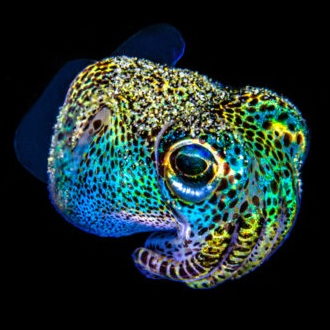"Cold and Tense": 10 Americans on How Politics Changes Relationships
Audrey Vera, 33, Oakland, Calif.
"I finally told them my girlfriend was a cop."
"I played bass in a death-rock band for almost five years. We would say that we were like family. I could go to a show and either know someone playing or know people there and feel welcomed. I am a nonbinary lesbian, and my band mates are also queer and trans, so having chosen family is huge.
"I started dating my partner in June 2020, around the time of the George Floyd murder. She works as a cop. I knew that was going to be contentious, so I kept her profession a secret. Throughout that year, they met my girlfriend and never had an issue with her. Around the time the Floyd cop had his trial, my band decided they wanted to write an 'ACAB' ['All Cops Are Bastards'] song, and I finally told them my girlfriend was a cop. They didn't talk to me for a week and then called to say I wasn't 'a fit' for the band.
"I find it all very disheartening, but mostly so because she became a cop to have an influence on changing the police work force culture and create a safer environment for women, queer and trans people. Before I met her, I never would have thought I would be romantically involved with a cop. But if I hadn't been open to unpacking my own snap judgments about people who become cops, then I wouldn't have won the lesbian lottery. It really just speaks to how much your life can get unlocked when your gut goes by what you experience of a person instead of social narratives you've been told."


A fair amount of people think they can do better from the inside of the machine. Almost all fail in this, at least outside of small, individual interactions. They then either:
Among the last group, maybe a tiny percentage somehow win a decades-long 4D chess game and get to a position of real power while secretly retaining their initial values. But they've almost certainly compromised their values more than they think, they lack credibility with the people they say they want to help because of their entire career up to that point, they now have a bunch of long-term friends with the shit values of their organization, and they likely underestimate what bullshit will be pulled to remove them if they try to rock the boat.
All this is to say that I can understand why this type of person would want to become a cop (especially given the lack of "legitimate" options for major political change), but folks like this either wash out or give up why they took the job in the first place.
They have the arrogance to believe they can change the org when it's the org that'll change them.
Some arrogance, some optimism, some naivete, some lack of obvious better options.
Good list but you forgot option 4, get shot in the back by one of the other cops for being even a little less evil than they are
Option 5 is :dorner:
It's like hazing. To advance in the police force, you'll necessarily have committed enough wrongdoings to become a senior that you'll effectively incriminate yourself if you then effect any change.